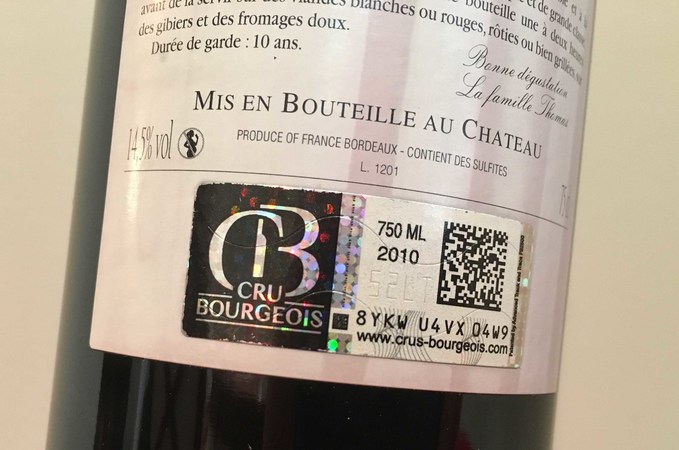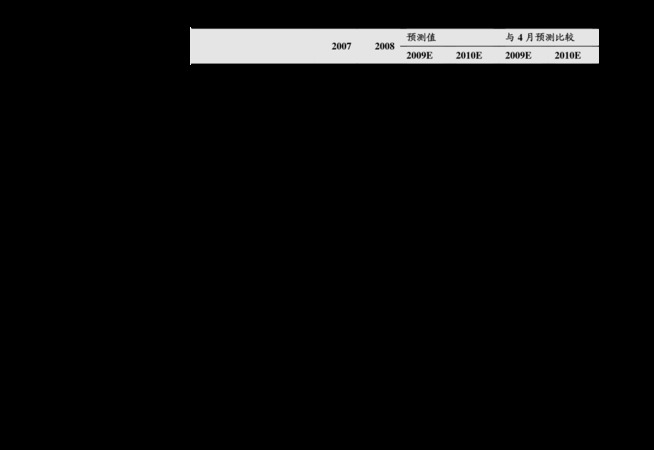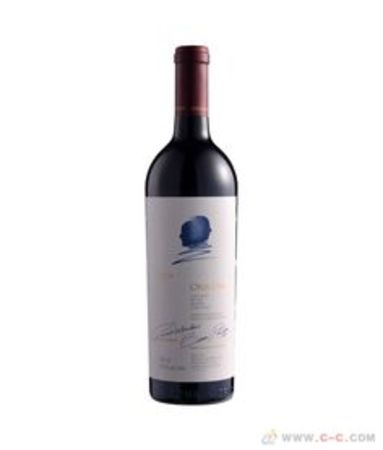1. challenging
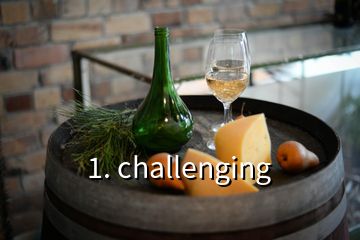
挑战性的:1.challenging2.challengingly其它相关解释:<warlike>例句与用法:1.一门挑战性的课程;给一个无经验的演员一个挑战性的角色Achallengingcourseofstudy;achallengingroleforaninexperiencedperformer.
2. challenging和challengeable的区别
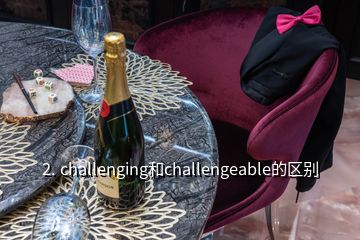
区别就是两者都是动词challenge加后缀派生的形容词,具体的不同如下
challenging中文意思是adj. 富于挑战性的,困难而有趣的;挑衅的,不赞同的,v. 挑战,向……下战书;质疑,拒绝接受;考验(challenge 的现在分词形式)
She does not like anyone challenging her authority.
challengeable中文意思是adj. 挑战性的,可挑战的
I am good at the science subjects which are challengeable.
3. challenging time翻译
01
司空见惯词:enough 足够的;充足的
高级替换词:
sufficient [sfnt] [正式用语] 足够的;充足的
例句:
Make sure you have sufficient food, water, medicine and batteries for electrical appliances.
02
司空见惯词:necessary 必需的;必要的
高级替换词:
① essential [senl] 必不可少的;最重要的
② vital [vatl] 至关重要的
例句:
Cooperation between team members is essential. If each individual does her job and works well with others, then the end goal can be achieved.
Artemisinin has become a vital part of the treatment for malaria, and is thought to save 100,000 lives a year in Africa alone.
03
司空见惯词:huge 巨大的;庞大的
高级替换词:
① vast [vɑst] 巨大的
② enormous [nms] 巨大的;庞大的
例句:
Through intense effort, Yuan overcame enormous technical difficulties to develop the first hybrid rice that could be used for farming in 1974.
Honestly, it can be both exciting and terrifying to explore a vast unknown land.
04
司空见惯词:great 杰出的;优秀的;伟大的
高级替换词:
① excellent [ekslnt] 杰出的;优秀的;极好的
② brilliant [brlint] 杰出的;卓越的;才华横溢的
例句:
On 18 April 1955, it was reported that Einstein had passed away, and the whole world mourned the great loss of a brilliant scientist.
The Nobel Prize in Literature has been awarded to an excellent author from any country almost every year since 1901.
05
司空见惯词:clever 聪明的;机灵的
高级替换词:
① intelligent [nteldnt] 聪明的;有才智的;有智力的
② smart [smɑt] 聪明的;机敏的;精明的
例句:
Albert Einstein, who is perhaps the greatest scientist in modern physics, is often considered one of the smartest men who ever lived.
People who have high IQs may not be emotionally intelligent and vice versa.
06
司空见惯词:brave 勇敢的;无畏的
高级替换词:courageous [kreds] 勇敢的;无畏的
例句:
Einstein was not only a genius; he was a courageous and kind figure loved by many people.
07
司空见惯词:difficult 困难的
高级替换词:challenging [tlnd] 有挑战性的;困难的
例句:
Although there was not as much homework as I was used to, it was still challenging.
08
司空见惯词:important 重要的
高级替换词:significant [sɡnfknt] 重要的;(意义) 重大的
例句:
Customs play a significant role in festivals, but sometimes they can change over time.
That writing system was of great importance in uniting the Chinese people and culture.
09
司空见惯词:happy 高兴的;快乐的
高级替换词:delighted [dlatd] 高兴的;快乐的
例句:
I would be delighted to have the opportunity to discuss my application further with you.
10
司空见惯词:worried 焦虑的;担心的
高级替换词:concerned [knsnd] 担忧的;关心的
例句:
I know you won't want to, but I'm very concerned about you.
4. challenging的用法
be adj to do的用法涉及到动词不定式的用法,分俩种情况:
1. be +情感类形容词(happy/glad/pleased/nice等)+to do,表达的意思是:高兴做什么事情,动词不定式是原因状语。
举例:I'm quite happy to wait for you here.我非常高兴在此等候您。
Lily was very happy to see her wonderful stickers again.她又一次看见我的贴画莉莉非常高兴。
He was satisfied to win the race.他对赢得赛跑感到满意。
2. be +修饰事情的形容词(easy/difficult/hard/challenging等)+to do,表达的意思是:什么事情很容易/难做。前面有形式主语it时,to do是真正的主语;前面主语是物的时候,to do是主语补足语。
举例:These cakes are very quick and easy to make. (主语补足语)这些糕饼做起来又快又简单。
The shower is easy to install. (主语补足语)淋浴器易于安装。
It is important to get something down on paper. (真正主语)重要的是要把一些事情写在纸上。
5. challenging是什么意思
gameplay 英[ˈgeɪmpleɪ] 美['ɡeɪmpleɪ] n. (电脑游戏的) 游戏情节设计,玩法; [例句]On PC, the game had it all — imaginative storyline and characters, challenging gameplay, superb graphics.个人电脑里的游戏非常完美,从想象力丰富的故事情节及人物到富有挑战性的游戏设计和精美画面,应有尽有。
6. challenging的比较级和最高级
比较级用在两个事物的比较,最高级是三个或三个以上。比较级一般在原级词后加er,或词前加more。最高级加est或词前加most。
比较级和最高级的构成和用法
A. 比较级和最高级的构成:
1. 形容词和副词加“er”构成比较级,加“est”构成最高级。
例如:great greater greatest;narrow narrower narrowest
fast faster fastest; clever cleverer cleverest
2. 以e结尾的单音节形容词和副词后以及少数以-ble,-ple结尾的双音节形容词和副词之后,加“r”构成比较级,加“st”构成最高级。
例如:large larger largest;able abler ablest
simple simpler simplest
3. 以一个辅音结尾的单音节形容词,其前的元音字母发短元音时,该辅音字母要双写,然后加“er”,“est”。
例如:hot hotter hottest
4. 以辅音加y结尾的形容词和少数不是形容词加ly构成的副词,要将y改为i,再加“er”构成比较级,加“est”构成最高级。
例如:easy easier easies;
early earlier earliest
happy happier happiest
5. 一般在双音节或多音节的形容词和副词原级前加more构成比较级或加most构成最高级。
例如:beautiful more beautiful most beautiful
careful more carefully most carefully
6. 少数单音节形容词也加more和most构成比较级和最高级。
例如:tired more tired most tired
pleased more pleased most pleased
7. 下列形容词,副词的比较级和最高级可有两种构成方法。
cruel crueler/ more cruel cruelest/ most cruel
often oftener/ more often oftenest/ most often
strict stricter/ more strict strictest/ most strict
friendly friendlier/ more friendly friendliest/ most friendly
8. 下列形容词,副词的比较级和最高级的构成不规则。
good/well better best
bad/ill worse worst
many/much more most
little less least
far farther /further farthest/ furthest
old elder/older eldest/oldest
三、比较级的用法:
1. 双方比较表示一方超过另一方时, 用“比较级+than”的结构表示。
例如:There are more workers in this factory than in that factory.
这个工厂的工人比那个工厂的多。
The climate of Dalian is better than that of Shanghai.
大连的气候比上海好。
The atmosphere of the earth is much denser than that of the moon. 地球的大气比月球的要稠密的多。
2. 表示一方不3. 及另一方时,4. 用“less +原级+ than”的结构表示。
例如:This room is less beautiful than that one.
这个房间不如那个房间漂亮。
They speak less fluently but more correctly than we(do).
他们讲得不如我们流利,但比我们准确。
5. 表示一方超过另一方的程度或为二倍6. 时,7. 可在比较级前加表示程度的状语。
如: even, a little ,still, much, far , yet ,by far, slightly, very much, no, any, rather, a great deal, a lot, lots, a bit等修饰。
例如:He works even harder than before.
他比以前更加努力工作。
There is lots more sugar in the storeroom.
储藏室有更多的糖。
He was too tired to walk any further.
他太累了,再也走不动了。
Are you any better than before?
你今天比以前好点了吗?
That would be a great deal better.
那样的话就好多了。
The photographs of Mars taken by satellites are much clearer than those taken from the earth.
从卫星上拍的照片比从地球上拍的清楚。
注意:英语的比较级前如无even, still或yet等时,译成汉语时可用“较……”或“……一些”或不译出,一般不可用“更”。
如:She is better than she was yesterday.
她比昨天好些了。
Please come earlier tomorrow.
明天请早点来。
注意:by far, far, much 通常用于强调最高级。by far用于比较级时,一般放在比较级的后面。如放在前面,应在二者中间加“the”。far and away, out and away, the very只能用于修饰最高级。
如:Building this tunnel was by far the most challenging problem in the system.
建筑这样一条隧道无疑是这个系统中最棘手的工程。
This is much the best.
这是最好的。
It is far and away ( or out and away) the best.
这是好的无以复加。
This is the very best book that he ever wrote.
这是他写过的书中最好的一本。
8. 表示主语随另一方的程度而9. 变化时,10. 用“the +比较级(主语+谓语),11. the +比较级(主语+谓语)”的结构。
例如:The harder he works, the happier he feels.
他越努力工作越感到幸福。
The higher we went up the mountain, the colder it became. 越往山的高处爬越冷。
The more they talked, the more encouraged they felt.
他们越说越感到鼓舞。
12. 不13. 与其它事物相比,14. 表示本身程度的改变时,15. 用“比较级+比较级”的结构。
例如:The weather is getting colder and colder.
天气越来越冷。
The girl becomes more and more beautiful.
这个女孩长得越来越漂亮。
The days become longer and longer.
天变的越来越长。
We are walking more and more slowly.
我们走得越来越慢。
6. 在inferior(劣于), superior(优于), junior(年幼的), senior(年长的), prior(前面的), posterior(后面的)等后面用to代替than。
例如:He is superior to Mr. Wang in mathematics.
在数学上他比王先生好。
His work is inferior to mine.
他的工作不如我的好。
He is 2 years senior to me.
他比我大两岁。
The duty is prior to all others.
这项任务比其他任务都重要。
7.在比较从句中为了避免重复,我们通常用that (those),one (ones)代替前面出现的名词,that指物,one既可指人,也可指物.that可代替可数名词单数和不可数名词,而one只能代替可数名词。
例如:The book on the table is more interesting than that on the desk.
餐桌上的那本书比课桌上的那本书有趣。
A box made of iron is stronger than one made of wood .
铁箱子比木箱子结实。
“ the + 形容词的比较级 + of ”
例如:He is the taller of the two.
他是两个人中较高的一个。
She is the more beautiful of the two sisters.
她是两姐妹中较美的一个。
Of the two landscapes that you have shown me, this one is the more picturesque.
你给我看的两处景色中,这一处更别致。
8.表示倍数的比较级有如下几种句型:
A. A is three (four,etc.)times the size (height,length,width,etc.)of B
例如:The new building is four times the size(the height)of the old one.
这座新楼是那座旧楼的四倍大(四倍高)。(这座新楼比那座旧楼大三倍[高三倍])
B. A is three (four, etc.)times as big (high, long, wide, etc.)as B.
例如:Asia is four times as large as Europe
亚洲是欧洲的四倍大。(亚洲比欧洲大三倍。)
C. A is three(four, etc.)times bigger(higher, longer, wider, etc.)than B
例如:Your school is three times bigger than ours.
你们的学校比我们的学校大三倍。(你们的学校是我们学校的四倍大。)
用times表示倍数,一般限于表示包括基数在内三倍或三倍以上的数。表示两倍可以用twice或double。
四、 最高级的用法
1. 三者或三者以上相比,2. 表示最高程度时,3. 用“the + 最高级”
的结构表示。这种句式一般常有表示比较范围的介词短
7. challenging的近义词
反义词 none of us
all of us 我们所有人;我们大家
例句:
These are trying times for all of us.
对我们所有人来说,这是最难熬的时期。
It was a stressful time for all of us.
对我们所有人来说,那是一个艰难的时期。
none of us我们没有人
例句:
None of us knew how to treat her.
我们没有人知道该如何对待她。
It's more likely that none of us start a conversation because it's awkward and challenging, or we think it's annoying and unnecessary .
更可能的是,我们没有人开始交谈,因为这是尴尬和具有挑战性的,或者我们认为这是烦人和不必要的。
8. challenging和challenged的区别
challenging表属性 有挑战性的 challengeable表能力 有挑战力的
challenging
英 [ˈtʃalɪn(d)ʒɪŋ]
adj.挑战性的,考验能力的;要求高的
challengeable
英音 ['tʃælindʒəbl] ;美音 ['tʃælindʒəbl]
adj. 挑战性的
challenging
adj.
testing one's abilities; demanding
挑战性的,考验能力的;要求高的
challenging and rewarding employment
既有挑战性、报酬也不错的职业
the current challenging economic environment.
当前具有挑战性的经济环境。inviting competition; provocative
挑衅的;挑逗的
there was a challenging glint in his eyes.
他的双眼闪烁着挑衅的目光。
challengeable
副词
1.【法】 应回避的,可拒绝的
词形变化:形容词 challengeable
时态: challenged,challenging,challenges
英语解释:capable of being challenged
相似短语:unchallengeable law 【法】 不能改变的法律, 不变的法律
9. challenging短语
德爰礼智,才兼文雅,学比山成,辩同河泻,明经,光朝振野仪许中,声高洛下,含潘度陆,超终迈贾,才高八斗,学富五车诗成惊天地笔落泣鬼神 飘泊流浪多少年,来也匆匆,去也匆匆 ,来去总在风雨中。
自信天下一支笔文也纵横,武也纵横。
纵横天下论英雄学富五车,财高八斗。
满腹经伦,妙语如珠.
形容一个人 天赋很好的成语
成语:天资聪慧
形容一个人在篮球方面很有天赋的成语
出萃chū lèi bá cuì[释义] 出:;类:同类;拔:超出:草丛生的样子;比喻聚一起的人或物。
超出那一类;高出那一群。
形容人的品德、才能超出同类之上。
[语出] 《孟子·公孙丑上》:“圣人之于民;亦类也;出于其类;拔乎其萃。
